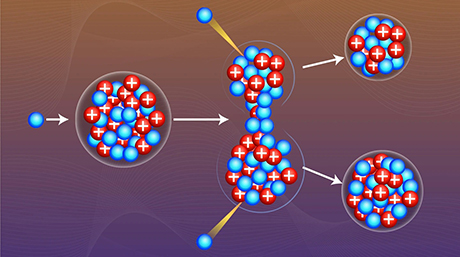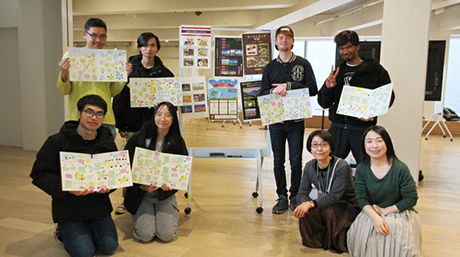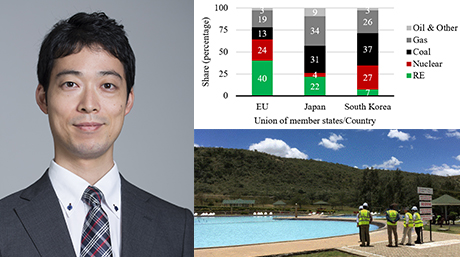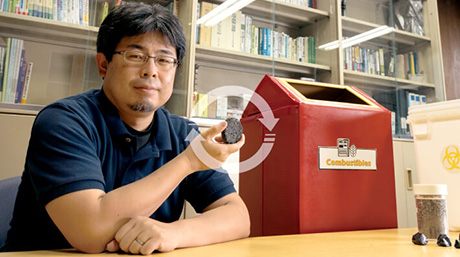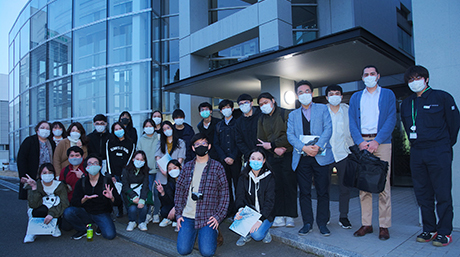Transdisciplinary Science and Engineering News
Labs spotlight #2 - Cross Laboratory -
Research focuses on Hydrogen Gas Separation, Biofuels, Batteries, Energy Policy, Machine Learning, SDGs, Environmental Toxicology and Educational Technology(Chat-GPT)
Last Updated:May 17, 2024
Last Updated:May 17, 2024
This "Spotlight" series features a laboratory from the Department and introduces you to the laboratory's research projects and outcomes. This time we focus on Cross Laboratory.

Energy Science and Informatics / Global Engineering for Development Environment and Society / Materials Science
Laboratory : Room 303, Ishikawadai 4 Bldg. , Ookayama campus
Professor Jeffrey Scott Cross![]()
|
Members: (as of May 2024) |
Professor, Assistant Professor, Lecturer, Office Staff, Post-Doctoral researcher, Visiting Researcher, Doctoral students, Master students, Undergraduate students, Research student, Research exchange students | Professor, Assistant Professor, Lecturer,Office Staff, Post-Doctoral researcher, Visiting Researcher, Doctoral students, Master students, Undergraduate students, Research student, Research exchange students |
| Areas of Research | Green Hydrogen, Energy Policy, Educational Technology, SDG, Waste to Energy Transformation, Environmental Toxicology, AI, Machine Learning, Batteries, Chat-GPT |
|---|---|
| Keywords | Hydrogen, Energy, Policy, Educational Technology, Waste to Energy, Environment, Toxicology, AI, Machine Learning, Green Chemicals, Chat-GPT, SDGs |
| Website |
Cross Laboratory |
The Cross lab conducts transdisciplinary research on SDG topics, which are summarized below. The lab began in 2016 and has grown to approximately 20 students, staff and faculty. The common core research themes between the groups is machine learning, waste to energy, educational technology, batteries, hydrogen gas separation and environmental toxicology. The lab utilizes lab-based education (experiential learning) focusing on students’ thesis research, where each student is both a learner and teacher. The lab aims to conduct research and develop technology/policies to cultivate students to become experts in their research field and global engineers. The lab collaborates with Associate Prof. Tatsuya Wakeyama, an expert in Asian energy policy, who leads the Energy Policy research group.
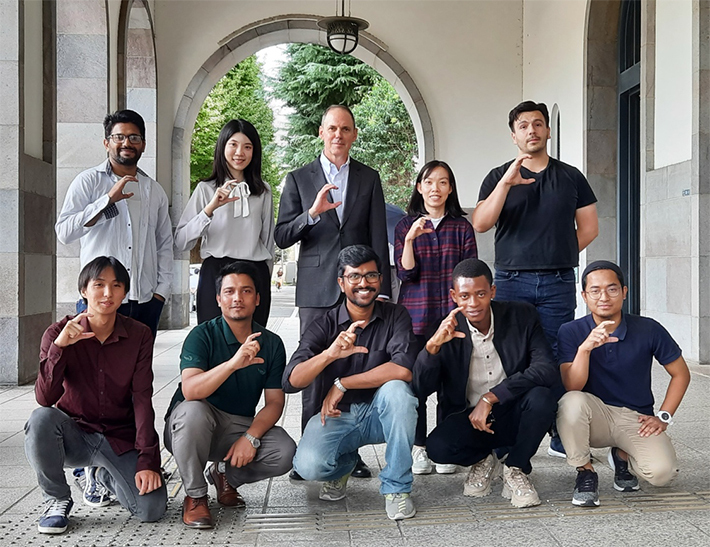
Lab members in front of main building entryway
Both students and visitors can experience a truly international research and learning environment, experience different ways of thinking, and conduct research on topics of personal interest in Tokyo. The lab partners both with local government facilities and international partners to create technology-based solutions. The lab is very active and publishes frequently in peer-review journal papers and presents numerous talks at international and domestic conferences annually.
New students can learn first-hand about what it is like to undertake research and development from a Japanese corporate staff researcher perspective, based upon Prof. Cross’s industrial experience. In addition, Japanese students can have an international research experience since students in the lab are from 11 different countries. Students in the lab often remark that they have improved English technical research presentation skills and academic writing ability. Many of the students win best presentation awards at conferences and workshops. See below for current research activities in the research groups.
Research interests
AI in Education and educational technology group
The lab's AI in education and educational technology research group is committed to the transformation of learning by combining artificial intelligence technology to improve learning efficiency supported by a JSPS Kakenhi research grant. The lab has also started doing research on facial emotion recognition, personalized learning using Chat-GPT and virtual reality. Group members also develop novel apps to provide personalized online learning of mathematics, and iconicity in Virtual Reality (VR) to learn English.
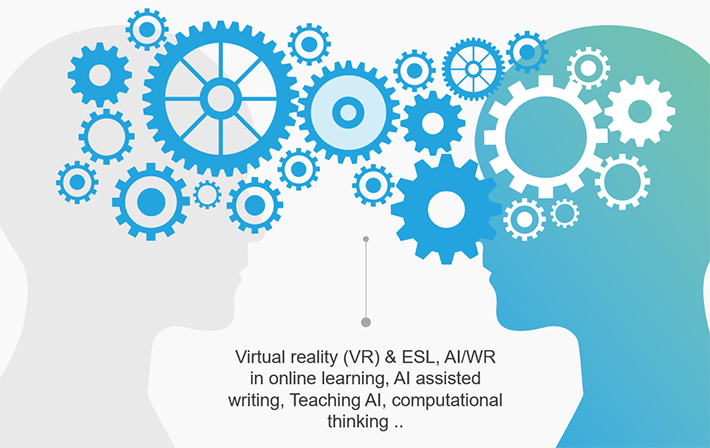
Energy policy group
The Energy Policy Research Group explores the production, distribution, economics, and international trade issues related to electricity and renewable energy. This has become an important topic in Asia as many countries strive to craft new energy policies and develop new technologies to achieve carbon neutrality in the near future. The group's research currently focuses renewable wave energy/costal protection, solar power forecasting, and energy storage on the moon.
Biofuels research group
The biofuels group conducts research on carbon-negative chemical processes by waste-to-energy transformations and process optimization using machine learning. Current research activities focus on hydrogen gas separation, non-lithium batteries, machine learning based modeling, production of biofuels/aviation fuel, and value-added chemicals from wastes.
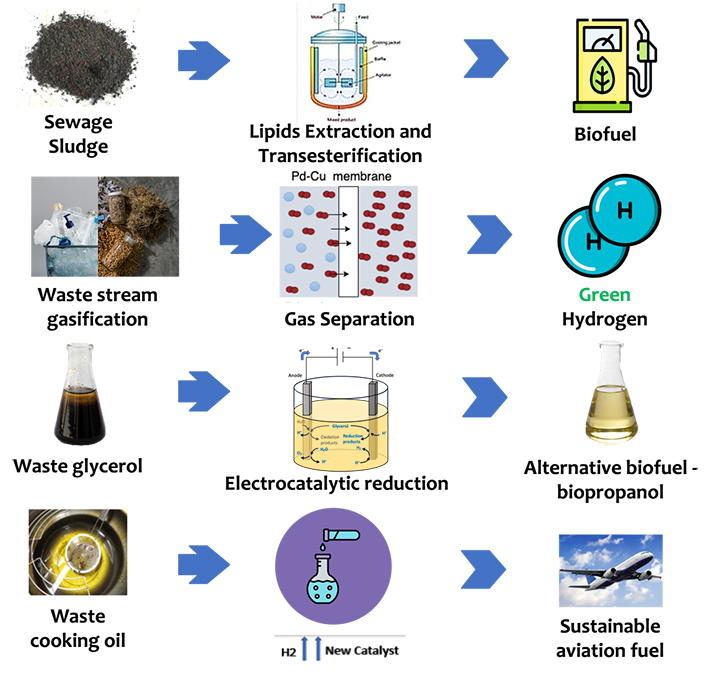
Biofuels research group topics
Environmental Toxicology Group
The Environmental Toxicology Research Group investigates the harmful effects of various chemical, biological, physical agents, and new-type pollutants, such as micro/nano plastic, on living organisms. The impact of pollutants on individual organisms, the food chain, and the entire ecosystem is carried out by establishing a micro-ecosystem that emulates the natural environment in the lab. Species studied include bacteria, algae, plants, plankton, crustaceans, and fish. This research investigates the impact of pollutants on individual organisms using the theory of complex system analysis to quantitatively explore the critical conditions that lead to ecosystem damage. Experimental data collected supports evidence- based decision making and management of newly developed substances and the formulation of future environmental policies.
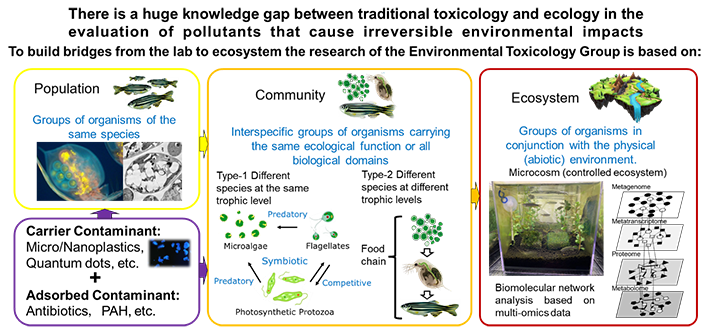
About the lab
- From Professor Cross
- In the lab, students join a research group of their choice and their research theme is decided based upon external research funding and potential social impact. Many of the research topics is related to SDGs. This transdisciplinary lab provides students an opportunity to learn about various research fields and enhances their breadth of knowledge. Weekly lab seminars are held to discussion student’s research progress in English. However, Prof. Cross speaks, reads/writes Japanese in order to communicate with Japanese students. Japanese students are encouraged to challenge themselves and apply to join the lab in order to become a global researcher or engineer. The lab atmosphere supports both American and Japanese working styles. Graduates of the labs are working in Japan and in other countries for governments, research institutes, NPOs, industry and teaching at universities.
- Faculty and Research Laboratories
- 4th UK-Japan Engineering Education League Workshop 2016 held at Tokyo Tech | Tokyo Tech News
- TiROP Summer Program 2015 cultural exchange event held | Tokyo Tech News
- MOOCs for Science & Engineering Education symposium | Tokyo Tech News
- Creating MOOCs with students | Education Stories
Contact
Professor Jeffrey Scott Cross
E-mail : cross.j.aa@m.titech.ac.jp
Facebook:https://www.facebook.com/CrossLaboratoryTokyoTech/
Instagram:https://www.instagram.com/cross_labs/
※ Find more about the lab and the latest activities at the lab site![]() .
.
※This article has been updated with the latest information on May 17 2024
